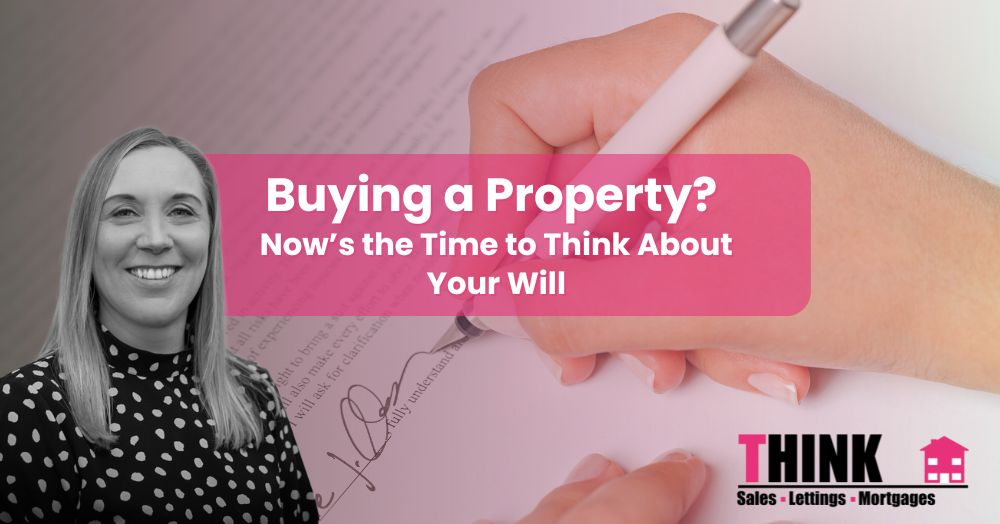
Buying a Property? Now’s the Time to Think About Your Will
There are certain milestones in your life when you should consider making a will or updating your existing one – and buying a home is one of them.
Why you should make a will
Making a will is the best way of ensuring that your home and other assets go to the people you want to have them when you die.
In legal terms, a will is known as a last will and testament. Your home and other assets are known as your estate.
Wills and homebuying – why it matters
Your home is almost certainly your biggest asset. If prices rise it could be worth even more in the future.
Most of us would like to think our home will go to the people we want to benefit from it after we die.
And yet, 53% of people have not told anyone what should happen to their estate after they die. (Source: The National Will Register.)
What to consider when making a will
- Who would you like to benefit from your estate when you pass away? It could be your spouse or partner, children, other relatives, friends or anyone you choose.
- Whether you want to leave gifts to charities or other organisations.
- If you have children under 18, who will look after them, and what financial provision might you make for this scenario?
- Who will be your executor? Your executor is responsible for ensuring your wishes are carried out. They can be a relative or friend or a lawyer or accountant.
Joint tenants and tenants in common – what you need to know
If you own or are buying a property with someone else (or several people), it is important to know about the legal differences between owning a property as joint tenants or tenants in common.
What are joint tenants?
This is also sometimes known as beneficial joint tenants.
With this type of ownership, you have equal rights to the whole property.
The property automatically goes to the other owner or owners if you pass away. You cannot pass on your ownership of the property to someone else in your will.
What are tenants in common?
With this type of ownership, you can own different shares of the property with others. In this situation, your share does not automatically go to the other owners if you die. You can pass on your share of the property in your will.
When buying a home, ask your solicitor or conveyancer about the different types of ownership and take further legal advice if necessary. Your solicitor or conveyancer will need to register your ownership with the Land Registry.
(There are some legal differences when buying property in Scotland. Ask your solicitor or conveyancer to learn more.)
If you are to be the sole owner of your home, this is not an issue. But it is still a good idea to consider making (or reviewing) a will.
How to make a will
To make or amend a will, it’s best to take advice from a solicitor who deals with wills or a professional will writing service. Tell them about your personal and financial circumstances and what you would like to happen to your estate when you die.
There are some free will writing services. Some of these are run by charities who would like you to leave them something in your will.
Do you have to make a will when buying a home?
No. Making a will when buying a house or flat is not compulsory. However, it is a good time to consider making or reviewing your will.
Another reason for having a will is that it might be beneficial for Inheritance Tax reasons. (It’s essential to take expert advice on this.)
What happens if you don’t make a will?
If you die without having made a will, your estate will be dealt with according to intestacy law. This could mean that your home and other assets do not go to the people who you wish to have them.
It could also mean it is very difficult to sort out your estate when you die. The process could take several years. The people who might be entitled to your estate are unlikely to receive anything in the meantime.
In some cases, not having a will could even mean that your home and other assets go to the Crown.
There are currently 5,883 estates on the official Unclaimed Estates List. Ultimately, these could all go to the Crown. (Source: Government Legal Department figures.)
We hope that you’ve found this article interesting. If you know someone who might find it useful, please share it with them.